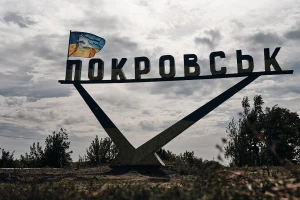
UN Court confirms Russia’s ICERD violation in Crimea. Ukraine responds
On Wednesday, January 31, the International Court of Justice ruled on Ukraine's lawsuit against Russia on the violation of the International Convention on the Elimination of All Forms of Racial Discrimination (ICERD)
European Pravda reported the information.
Ukraine filed a lawsuit against Russia in 2017. The lawsuit doesn't pertain to the actions of the aggressor country following the start of the full-scale invasion. The International Court of Justice recognized that Russia had violated its obligations to "not discriminate against the Ukrainian minority in the field of education."
The Presidium of the Court drew attention to the data on the dramatic decrease in the number of schoolchildren studying in Ukrainian.
"There was an 80% decrease in the first year (after the illegal annexation of Crimea - ed.), and another 50% in the following year," said Court President Joan Donoghue.
She also explained that the Court finds Russia's explanations about the natural causes of this decline unconvincing.
"Even considering that many ethnic Ukrainian families left Crimea after 2014, the Court is not convinced that this can alone account for a reduction of more than 90% of genuine demand in Crimea for school instruction in the Ukrainian language," Donoghue said.
However, the International Court of Justice rejected most of Ukraine's accusations against Russia in this lawsuit, in particular, it considered Russia's violation of international law in banning the Mejlis unproven.
While the court verified that Russia had indeed violated the 2017 order on interim measures, specifically the ban on the Mejlis, it ultimately did not identify a violation of the International Convention on the Elimination of All Forms of Racial Discrimination. As a result, no penalties were imposed on Russia.
Ukraine's response
Taras Kremin, the Commissioner for the Protection of the State Language, called the Hague court's decision historic.
"This historic decision of the Court in The Hague brings Russia closer to punishment, including for the crimes of linguistic violence that have been systematically committed in the temporarily occupied territories since 2014," he said.
According to him, the court's decision confirmed that Russia is pursuing a deliberate policy of exterminating the Ukrainian language from all spheres of public life in the temporarily occupied territories, depriving citizens of the right to use, study and learn the Ukrainian language, discrimination and repression against persons who publicly manifest their Ukrainian national identity, in particular through communication in Ukrainian.
-
On March 22, 2017, Ukraine informed the UN that in the occupied Crimea, the Russian authorities were implementing a policy of cultural "cleansing" and engaging in racial discrimination.
- News













































